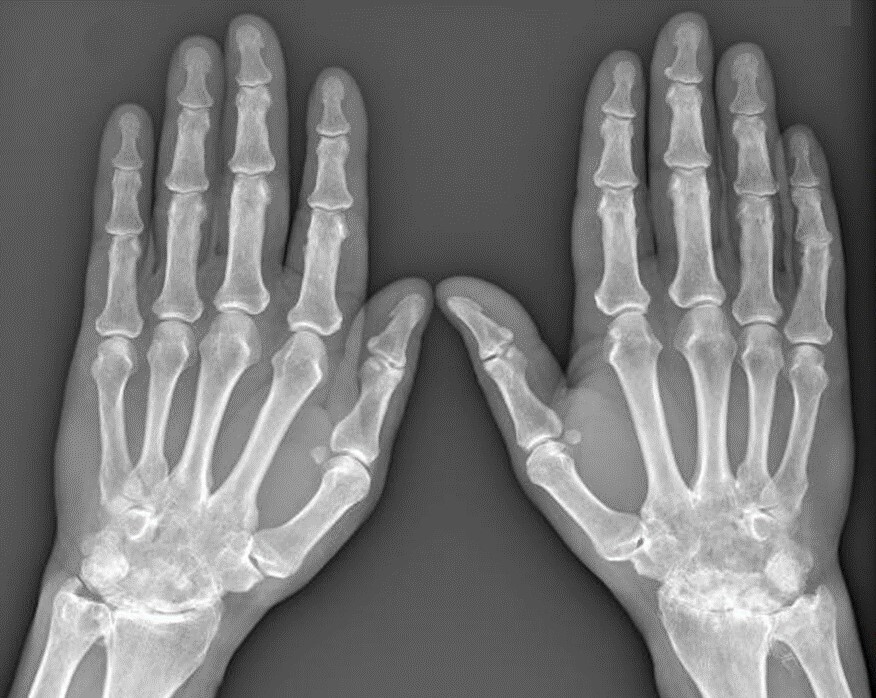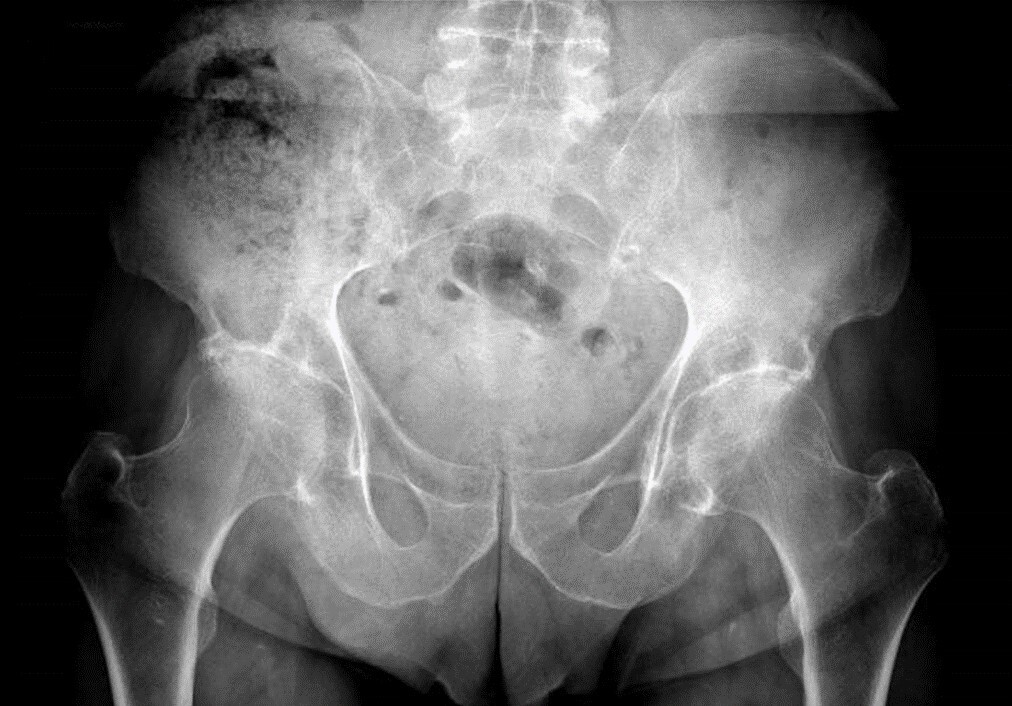Session Information
Date: Sunday, November 12, 2023
Title: (0252–0282) Miscellaneous Rheumatic & Inflammatory Diseases Poster I
Session Type: Poster Session A
Session Time: 9:00AM-11:00AM
Background/Purpose: Whipple disease is a chronic, curable, systemic bacterial infection caused by Tropheryma whipplei. The classic form usually begins with recurrent arthritis, followed years later by weight loss or diarrhea, sometimes associated with fever, lymphadenopathy, neurological, cardiac or ocular signs.1 Arthritis can occur in isolation for years, which can significantly delay diagnosis and lead to destruction and damage.
Methods: We describe a series of patients with destructive arthritis among those diagnosed with Whipple disease between 2007 and 2023 at our National Referral Center for Rare Systemic Autoimmune Diseases.
Results: Among a consecutive series of 52 patients diagnosed with Whipple disease during the study period, 48 presented joint manifestations, 14 of whom had destructive arthritis: 13 men and one woman, diagnosed at a mean (SD) age of 65.0 (9.5) years. Their first symptoms appeared at a mean age of 45.3 (12.5) years and consisted of arthritis in 13 (93%). Initially, all patients had intermittent arthritis, usually affecting one large joint at a time, with complete resolution within a week. After a mean of 11.7 (9.7) years, 12 patients developed permanent chronic arthritis with occasional additional flares. At diagnosis, all but one patient had chronically elevated CRP values (mean, 5.4 mg/dL), and neutrophil hyperleukocytosis was present in 67% of patients. Rheumatoid factor was detected in one patient and ACPA testing was negative in all. Radiographs showed narrowing of the carpal or radiocarpal joint in 12 cases (8 bilateral, 4 unilateral) (Figure 1), and global narrowing of the iliofemoral joint space in 10 cases (7 bilateral, 3 unilateral) (Figure 2), with subchondral cysts in 6. Progression to ankylosis occurred in 7 cases, at a late stage of the disease. Small joints were always spared. The diagnosis was made only after a mean delay of 19.7 (11.8) years (range, 5.4-40.1 years) after the first signs of the disease. Only 5/13 patients (38%) had positive PAS staining on duodenal biopsies. The diagnosis was confirmed by positive PCR results for Tropheryma whipplei on stool (73%), saliva (73%), and duodenal tissue (83%) samples; 5/8 patients (63%) were PCR positive in synovial fluid, 4/9 (44%) in blood and 3/8 (38%) in cerebral spinal fluid. Eleven patients received doxycycline and hydroxychloroquine, combined in case of CNS involvement (n=4) with sulfadiazine; 3 were treated with trimethoprim-sulfamethoxazole. Dramatic improvement was observed after administration of antibiotic therapy in all cases, with disappearance of arthritis flares within a few days.
Conclusion: A diagnosis of Whipple disease should be considered in a middle-aged man with unexplained seronegative destructive arthritis of the large joints, especially when preceded by intermittent acute episodes of arthritis and accompanied by persistent elevated CRP levels or leukocytosis, even in the absence of the cardinal manifestations of infection. PCR testing for Tropheryma whipplei from saliva and stool samples, or synovial fluid if available, has become the preferred initial diagnostic test. Clinical and biological improvement is often dramatic under antibiotic treatment.
Reference: 1. Puéchal X, et al. N Engl J Med 2007;356:55-66.
To cite this abstract in AMA style:
Puéchal X, Blanche P, Fogel O, Al Tabaa O, Ghossan R, Ayral X, AVOUAC J, Breban M, ALLANORE Y. Destructive Arthritis in Whipple Disease. a Single-center Case Series of 14 Patients [abstract]. Arthritis Rheumatol. 2023; 75 (suppl 9). https://acrabstracts.org/abstract/destructive-arthritis-in-whipple-disease-a-single-center-case-series-of-14-patients/. Accessed .« Back to ACR Convergence 2023
ACR Meeting Abstracts - https://acrabstracts.org/abstract/destructive-arthritis-in-whipple-disease-a-single-center-case-series-of-14-patients/


